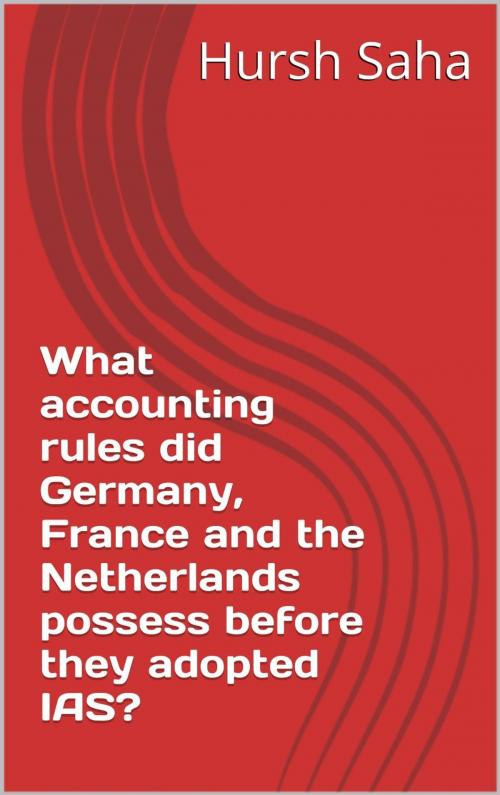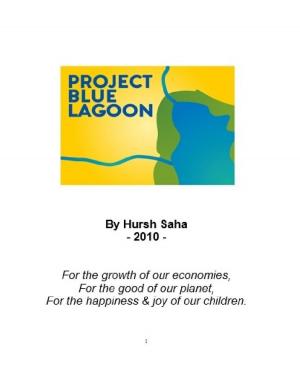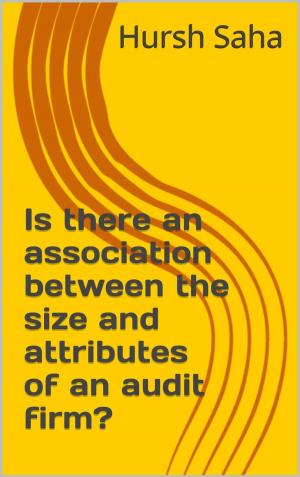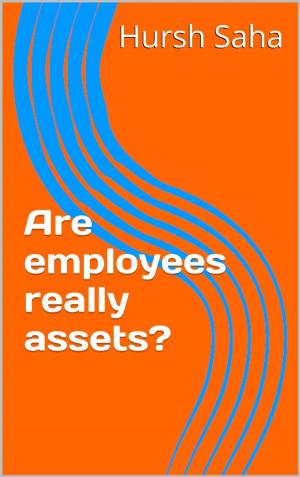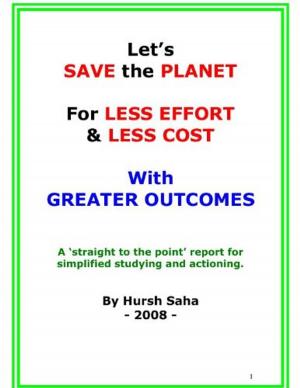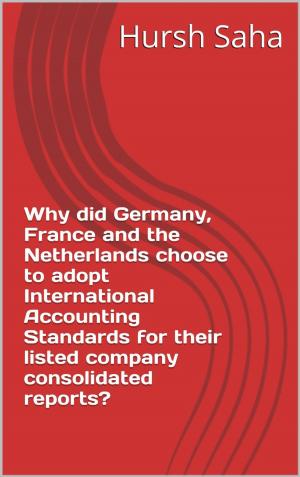What accounting rules did Germany, France and the Netherlands possess before they adopted IAS? (Germany, France and the Netherlands and their adoption of International Accounting Standards Book 2)
Business & Finance, Accounting| Author: | Hursh Saha | ISBN: | 1230000284234 |
| Publisher: | Hursh Saha | Publication: | October 1, 2006 |
| Imprint: | Language: | English |
| Author: | Hursh Saha |
| ISBN: | 1230000284234 |
| Publisher: | Hursh Saha |
| Publication: | October 1, 2006 |
| Imprint: | |
| Language: | English |
Accounting Honours University Essay
In 2000 the European Union decided that all EU listed companies would have to
prepare their consolidated reports in accordance with the international
accounting standards (IAS) of the International Accounting Standards Committee
by 2005. In general, member states can govern themselves but the EU has the
power to influence their self-governance. In 2000, after the EU decision, the
accounting regulators of each member state were free to decide when they
wanted to adopt IAS for their nation’s listed company consolidated reports,
provided it was done by 2005. German, French and Dutch accounting regulators
decided to adopt IAS for their nations’ listed company consolidated reports
before the 2005 deadline (the Germans and French in 1998 and the Dutch in
2001).
The purpose of this paper is to examine what Germany, France and the
Netherlands possessed, in the way of accounting rules and regulations for their
listed companies, before the decisions of their accounting regulators to adopt IAS
for the consolidated reports of their listed companies. The motivation behind this
purpose comes from the recent book entitled: International Accounting by Choi,
F.D.S. & Meek, G.K. (2005). The book details the history behind the current
accounting rules and regulations for the listed companies of the above three
European nations. This paper aims to expand on the claims made in the book by
Choi & Meek. The basic material from Choi & Meek is detailed in the paper, in a
summarised form, and is added to with that from other academic sources. This
paper also aims to contribute analysis to the material contained in it by
presenting a comparison of the accounting rules and regulations in Germany,
France and the Netherlands before their accounting regulators adopted IAS for
their listed company consolidated reports.
This paper will be based on secondary sources of information such as academic
articles, research papers, accounting books and online journals. Therefore, this
paper is a literature review on the subject area. In terms of structure, the paper
first presents an overview of the accounting environment for listed companies in
Europe from the end of World War II to the 1990s when they came under the
influence of the International Accounting Standards Committee (IASC) to adopt
IAS. The IASC influenced them to adopt IAS in order to participate in the IASC’s
goal of international accounting standard ‘harmonisation’ (discussed below).
Secondly, a brief history is provided of the accounting rules and regulations in
Germany, France and the Netherlands from the early 1970s to the late 1990s,
which was roughly the time when their accounting regulators decided to adopt
IAS for their listed company consolidated reports. This section is structured
thematically and within each theme, by country. At the beginning of the section is
a brief overview of the accounting regulatory environments in the three European
countries from after World War II to 1970. Thirdly, there is a comparison of the
similarities and differences between the accounting rules and regulations of
these three countries during this historical period (as mentioned above). Lastly, a
conclusion is presented.
Accounting Honours University Essay
In 2000 the European Union decided that all EU listed companies would have to
prepare their consolidated reports in accordance with the international
accounting standards (IAS) of the International Accounting Standards Committee
by 2005. In general, member states can govern themselves but the EU has the
power to influence their self-governance. In 2000, after the EU decision, the
accounting regulators of each member state were free to decide when they
wanted to adopt IAS for their nation’s listed company consolidated reports,
provided it was done by 2005. German, French and Dutch accounting regulators
decided to adopt IAS for their nations’ listed company consolidated reports
before the 2005 deadline (the Germans and French in 1998 and the Dutch in
2001).
The purpose of this paper is to examine what Germany, France and the
Netherlands possessed, in the way of accounting rules and regulations for their
listed companies, before the decisions of their accounting regulators to adopt IAS
for the consolidated reports of their listed companies. The motivation behind this
purpose comes from the recent book entitled: International Accounting by Choi,
F.D.S. & Meek, G.K. (2005). The book details the history behind the current
accounting rules and regulations for the listed companies of the above three
European nations. This paper aims to expand on the claims made in the book by
Choi & Meek. The basic material from Choi & Meek is detailed in the paper, in a
summarised form, and is added to with that from other academic sources. This
paper also aims to contribute analysis to the material contained in it by
presenting a comparison of the accounting rules and regulations in Germany,
France and the Netherlands before their accounting regulators adopted IAS for
their listed company consolidated reports.
This paper will be based on secondary sources of information such as academic
articles, research papers, accounting books and online journals. Therefore, this
paper is a literature review on the subject area. In terms of structure, the paper
first presents an overview of the accounting environment for listed companies in
Europe from the end of World War II to the 1990s when they came under the
influence of the International Accounting Standards Committee (IASC) to adopt
IAS. The IASC influenced them to adopt IAS in order to participate in the IASC’s
goal of international accounting standard ‘harmonisation’ (discussed below).
Secondly, a brief history is provided of the accounting rules and regulations in
Germany, France and the Netherlands from the early 1970s to the late 1990s,
which was roughly the time when their accounting regulators decided to adopt
IAS for their listed company consolidated reports. This section is structured
thematically and within each theme, by country. At the beginning of the section is
a brief overview of the accounting regulatory environments in the three European
countries from after World War II to 1970. Thirdly, there is a comparison of the
similarities and differences between the accounting rules and regulations of
these three countries during this historical period (as mentioned above). Lastly, a
conclusion is presented.
